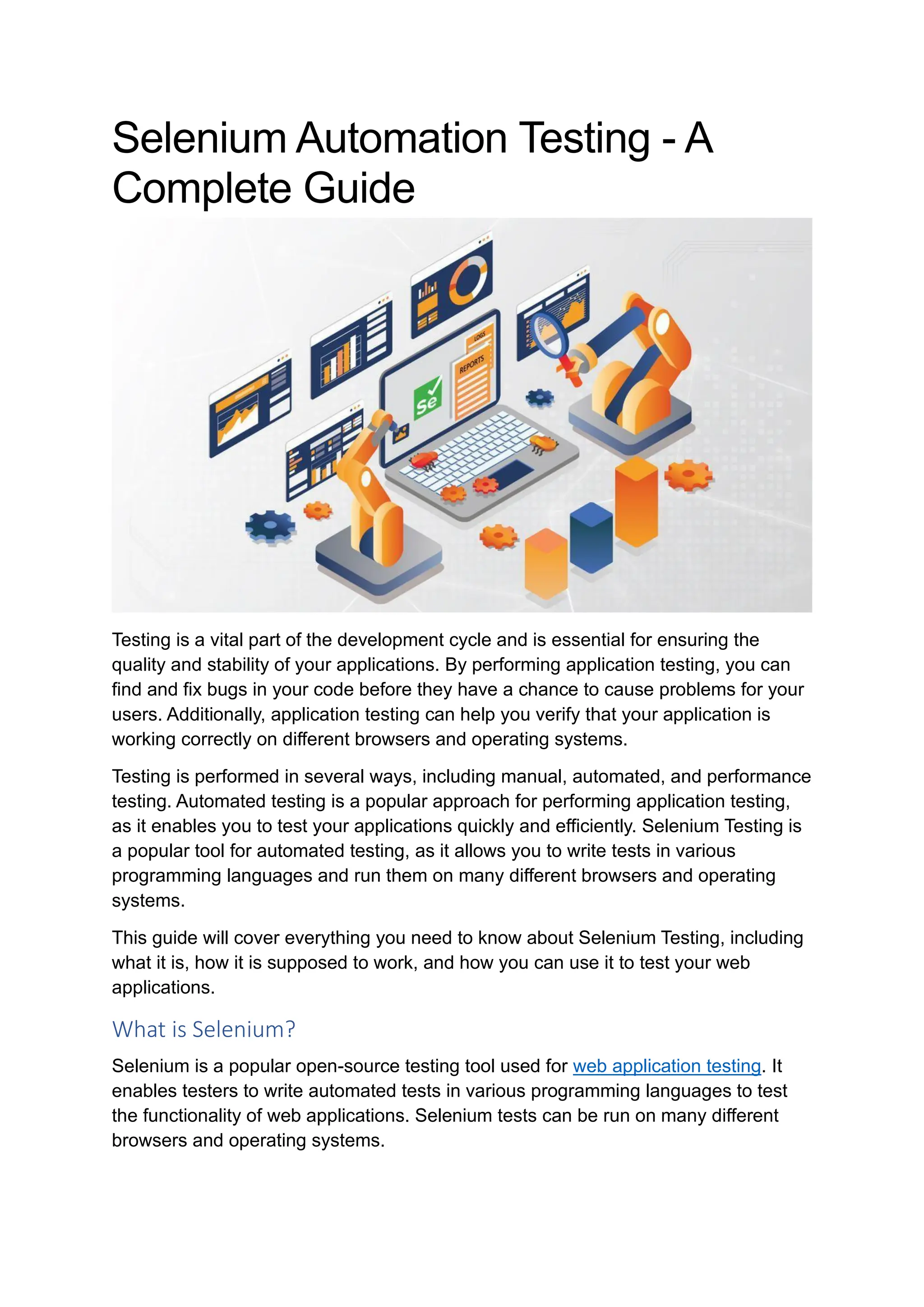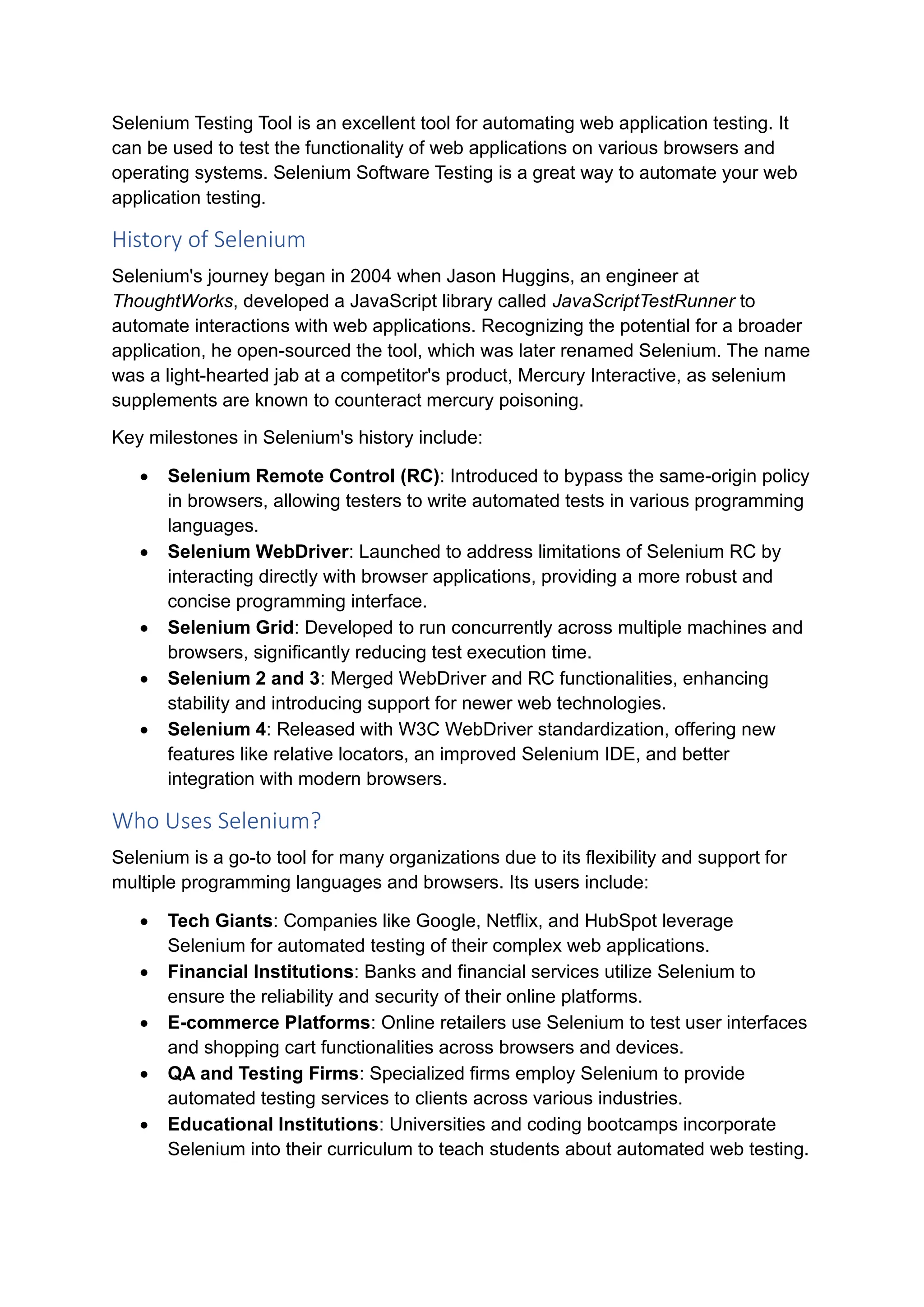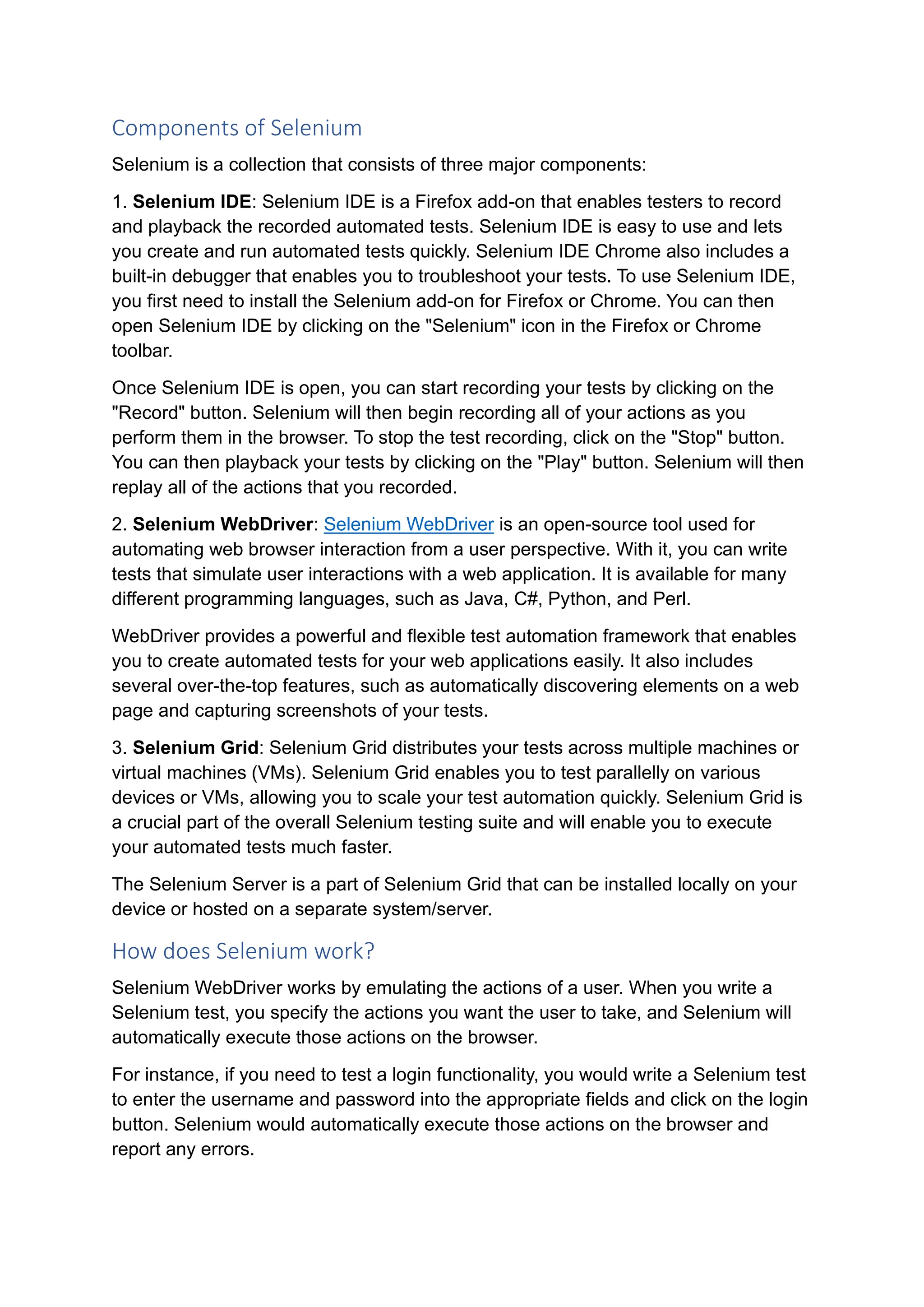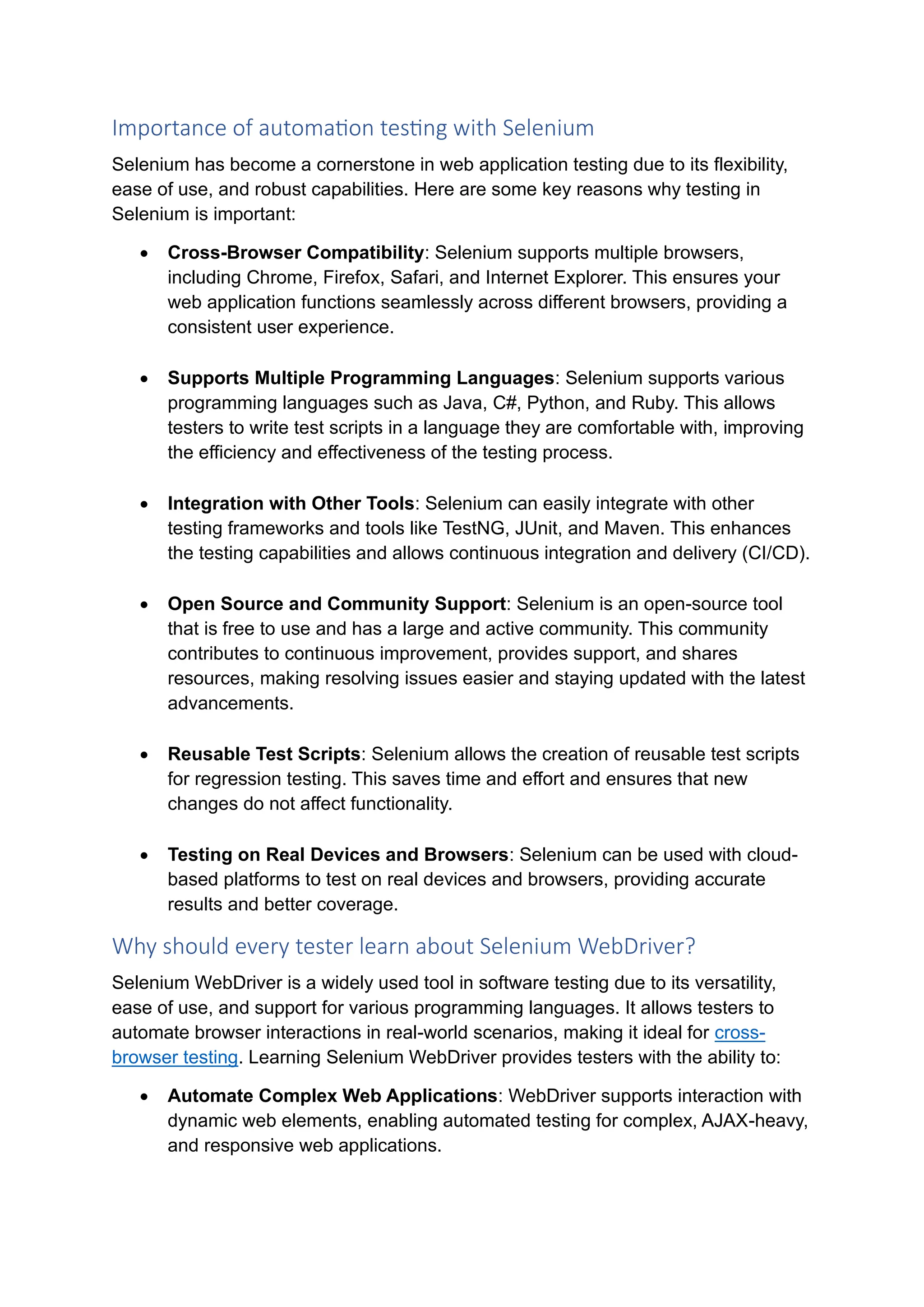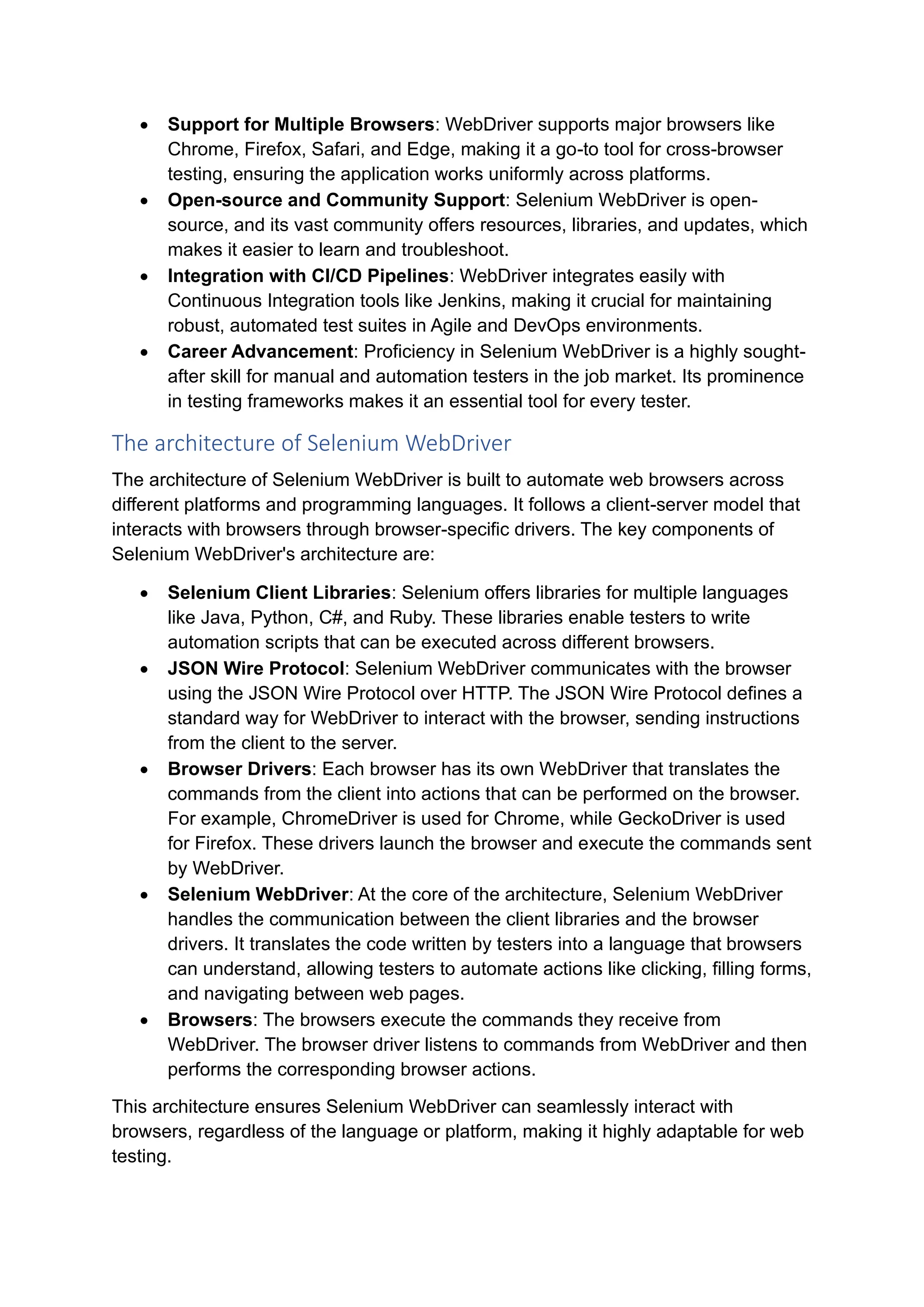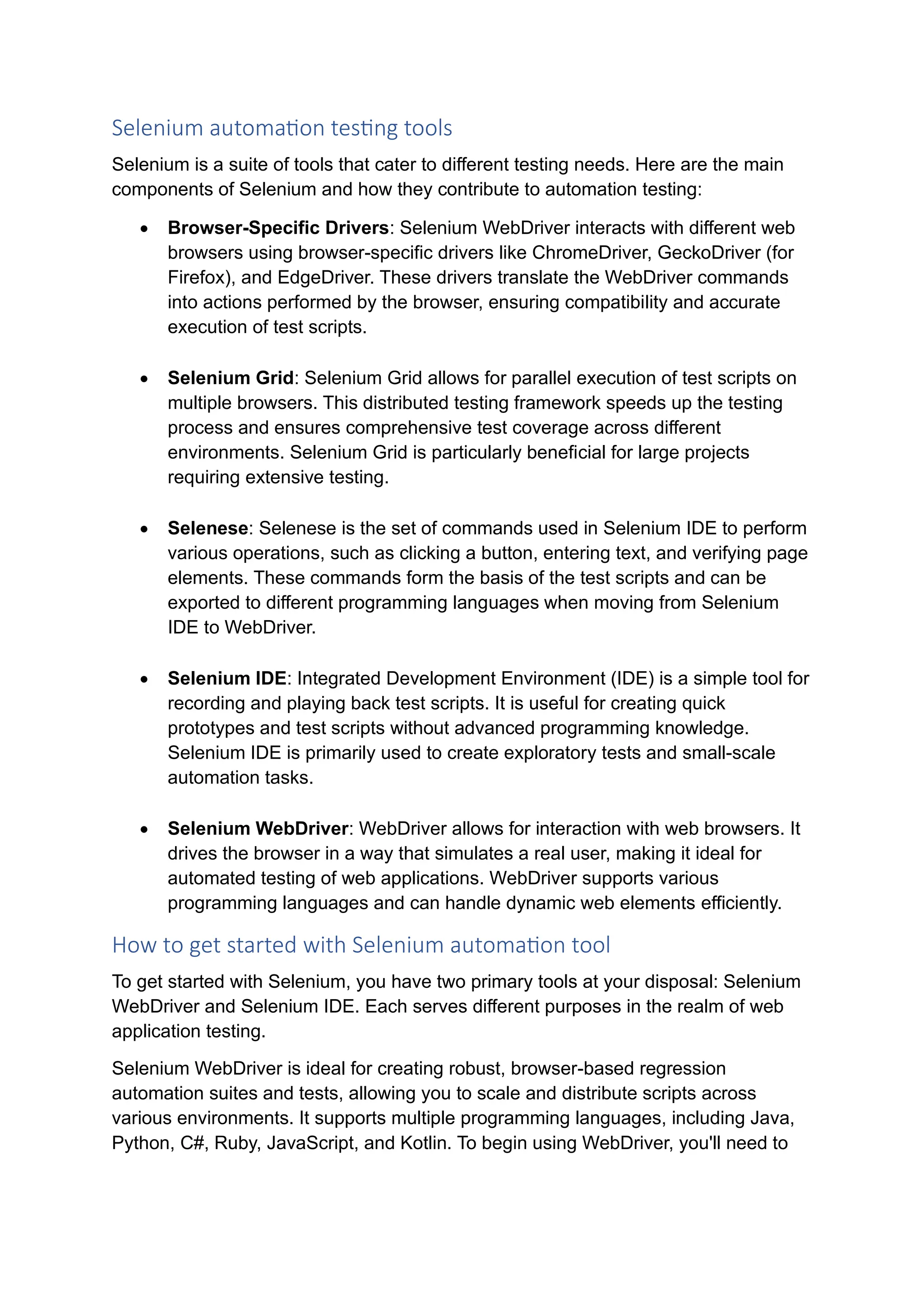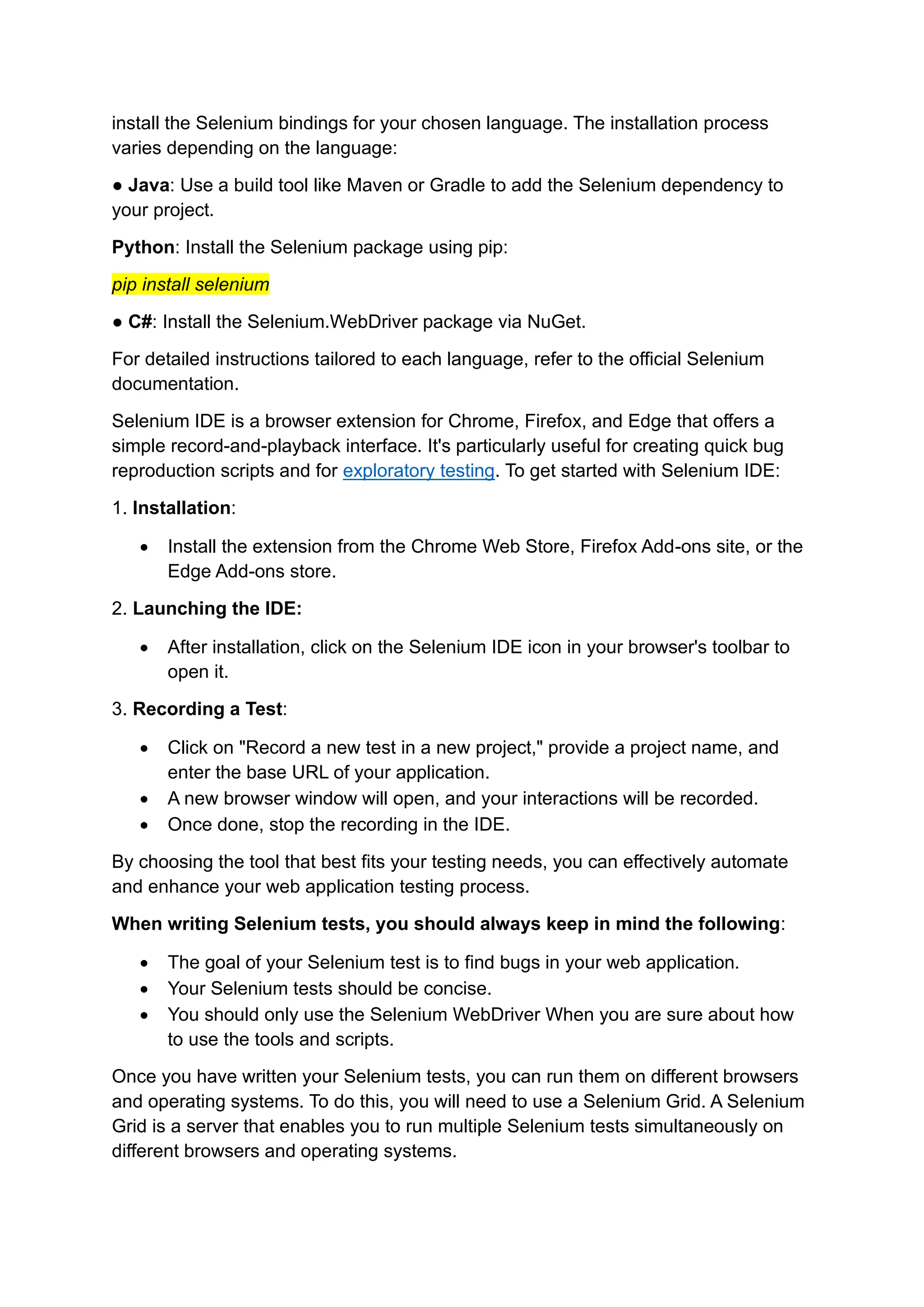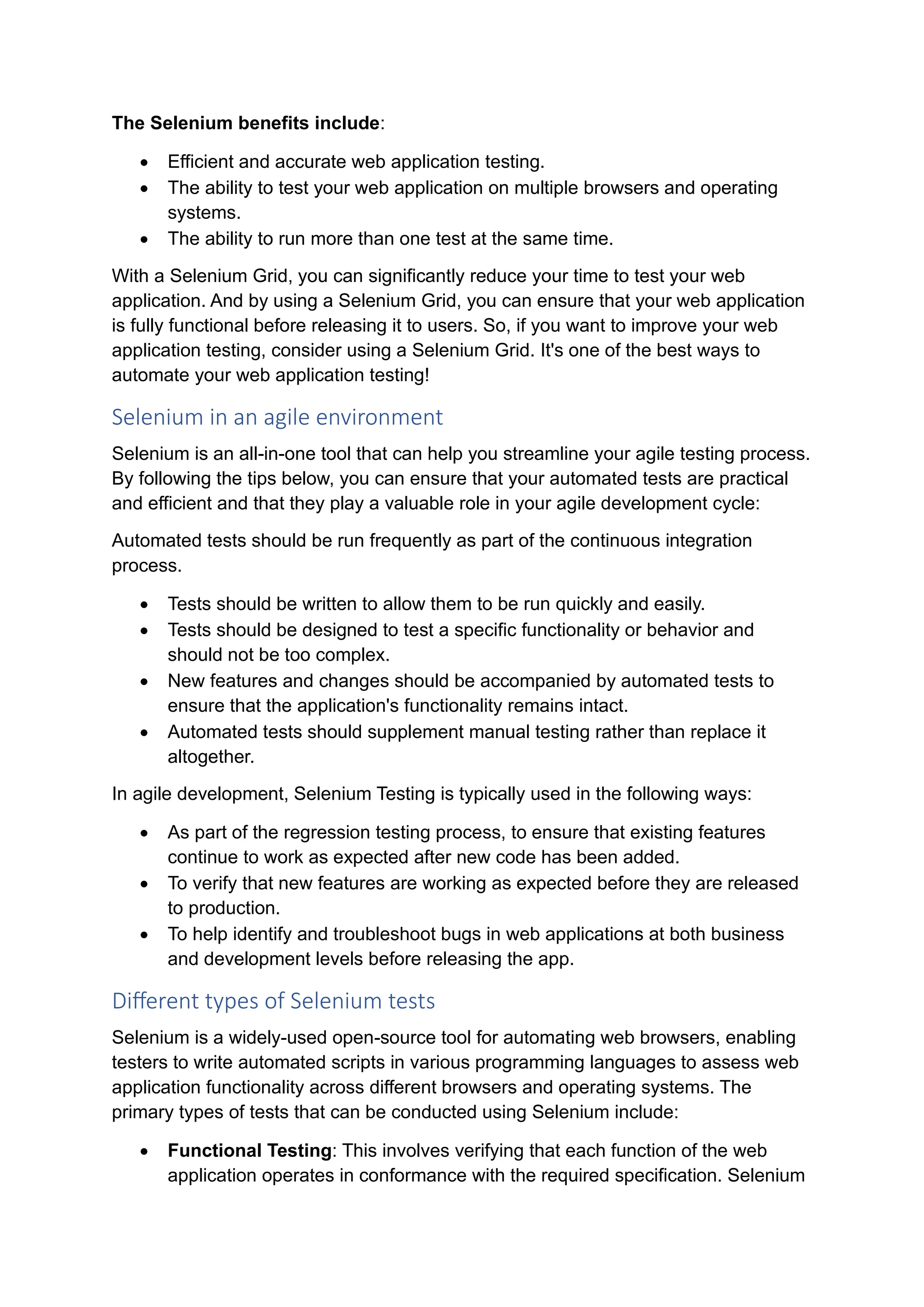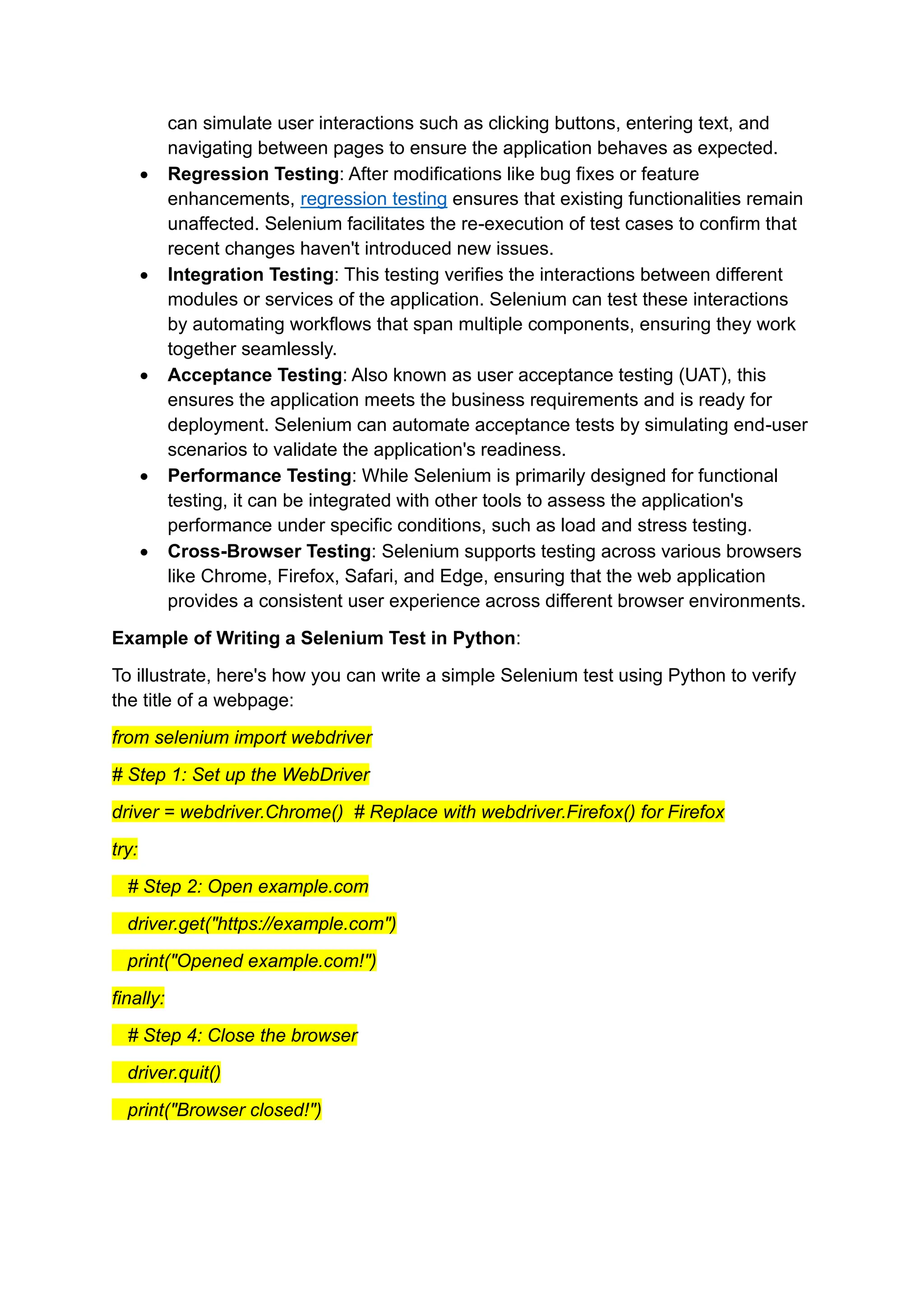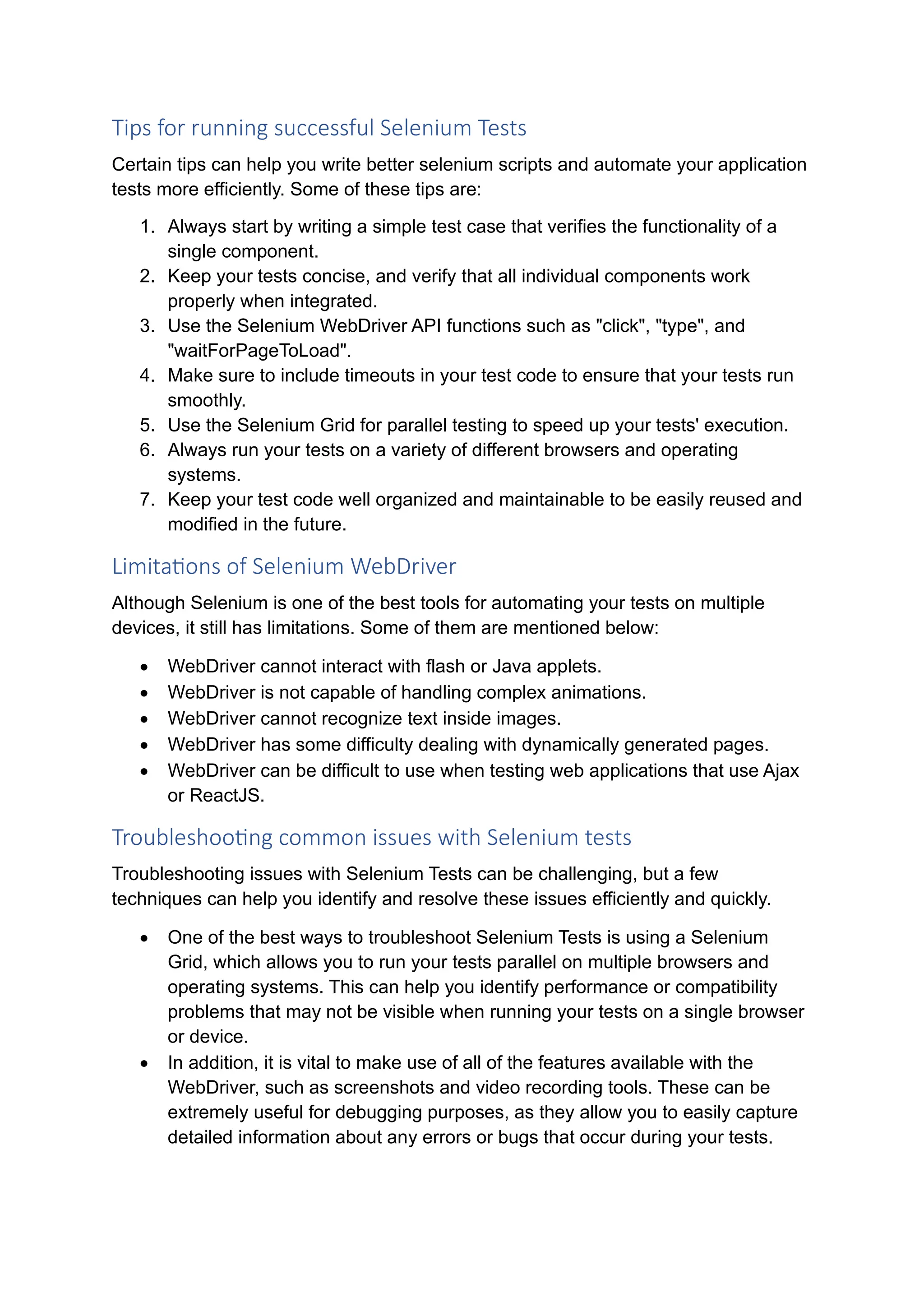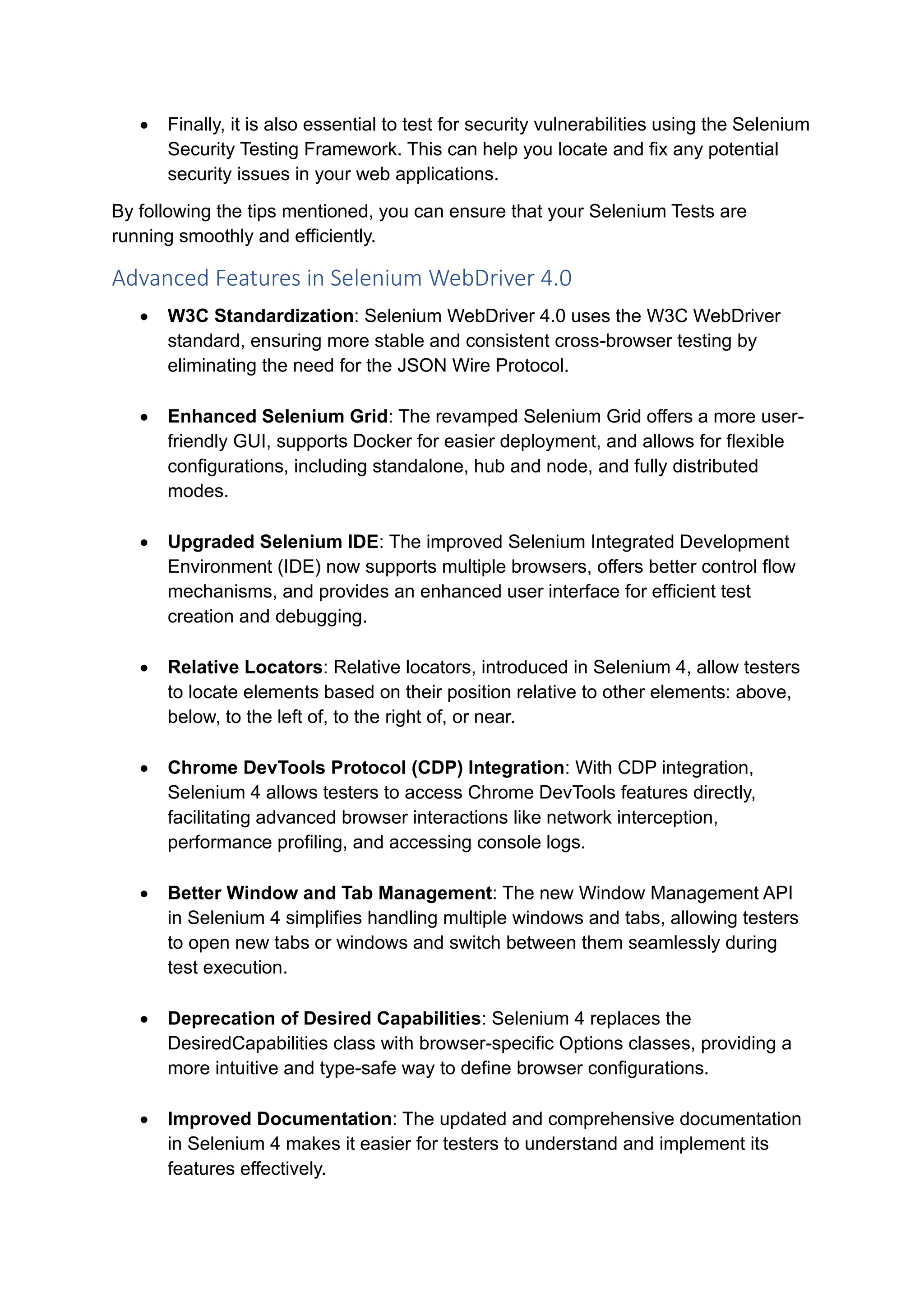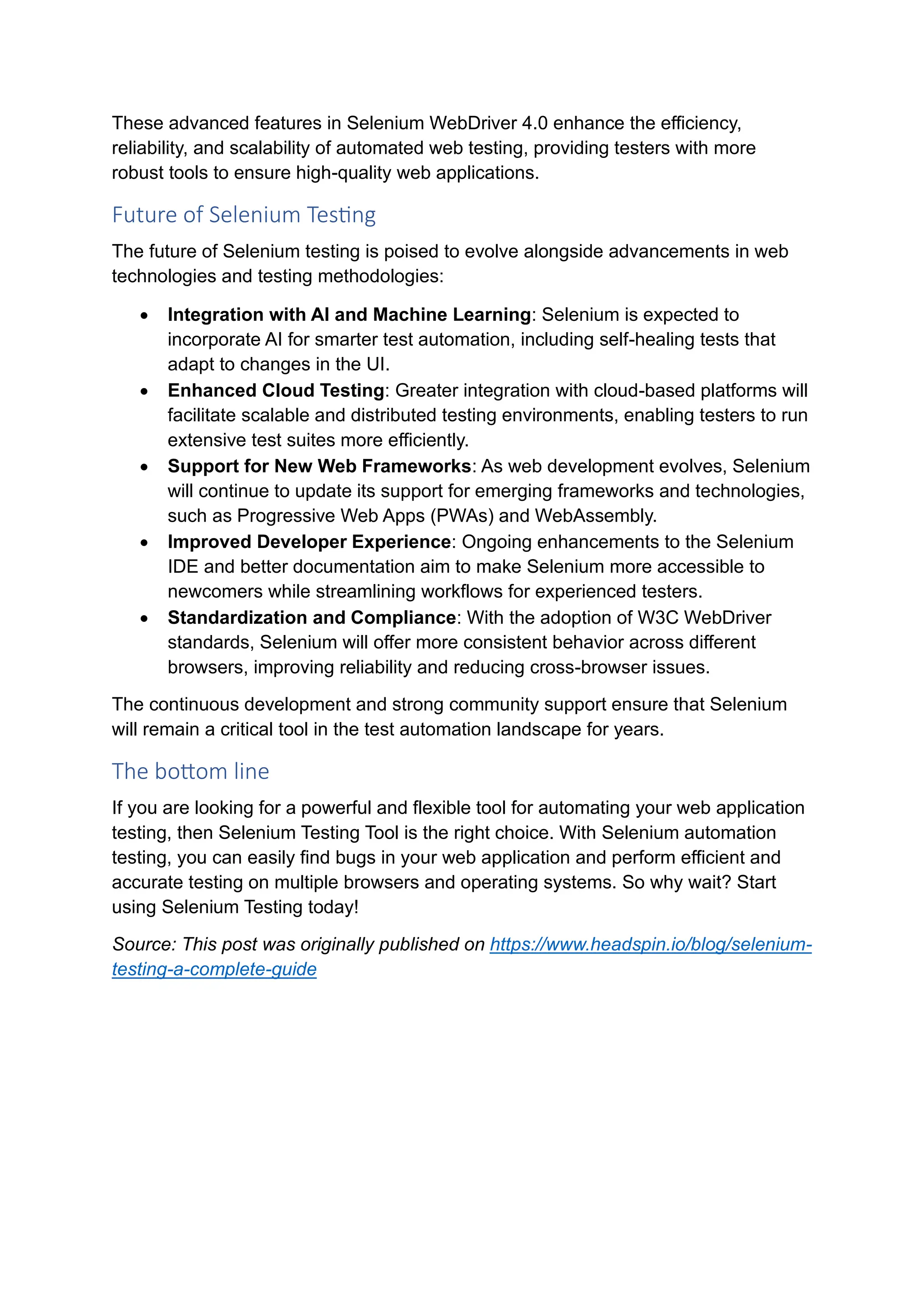Selenium has become a cornerstone in web application testing due to its flexibility, ease of use, and robust capabilities. Here are some key reasons why testing in Selenium is important: - Cross-Browser Compatibility: Selenium supports multiple browsers, including Chrome, Firefox, Safari, and Internet Explorer. This ensures your web application functions seamlessly across different browsers, providing a consistent user experience. - Supports Multiple Programming Languages: Selenium supports various programming languages such as Java, C#, Python, and Ruby. This allows testers to write test scripts in a language they are comfortable with, improving the efficiency and effectiveness of the testing process. - Integration with Other Tools: Selenium can easily integrate with other testing frameworks and tools like TestNG, JUnit, and Maven. This enhances the testing capabilities and allows continuous integration and delivery (CI/CD). - Open Source and Community Support: Selenium is an open-source tool that is free to use and has a large and active community. This community contributes to continuous improvement, provides support, and shares resources, making resolving issues easier and staying updated with the latest advancements. - Reusable Test Scripts: Selenium allows the creation of reusable test scripts for regression testing. This saves time and effort and ensures that new changes do not affect functionality. - Testing on Real Devices and Browsers: Selenium can be used with cloud-based platforms to test on real devices and browsers, providing accurate results and better coverage. Why should every tester learn about Selenium WebDriver? Selenium WebDriver is a widely used tool in software testing due to its versatility, ease of use, and support for various programming languages. It allows testers to automate browser interactions in real-world scenarios, making it ideal for cross-browser testing. Learning Selenium WebDriver provides testers with the ability to: Automate Complex Web Applications: WebDriver supports interaction with dynamic web elements, enabling automated testing for complex, AJAX-heavy, and responsive web applications. Support for Multiple Browsers: WebDriver supports major browsers like Chrome, Firefox, Safari, and Edge, making it a go-to tool for cross-browser testing, ensuring the application works uniformly across platforms. Open-source and Community Support: Selenium WebDriver is open-source, and its vast community offers resources, libraries, and updates, which makes it easier to learn and troubleshoot. Integration with CI/CD Pipelines: WebDriver integrates easily with Continuous Integration tools like Jenkins, making it crucial for maintaining robust, automated test suites in Agile and DevOps environments. Career Advancement: Proficiency in Selenium WebDriver is a highly sought-after skill for manual and automation testers in the job market. Its prominence in testing frameworks makes it an essential tool for every tester.
